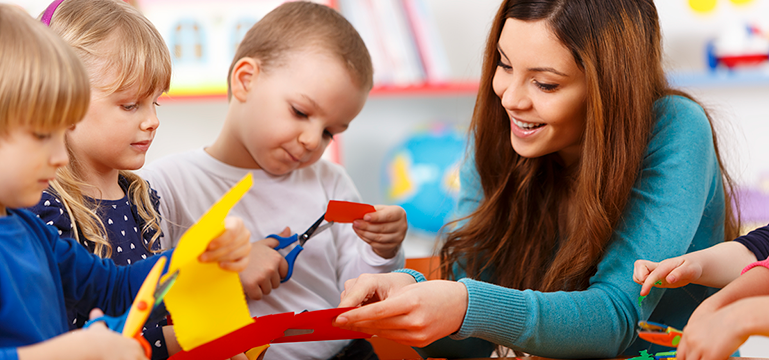Meeting the needs of the individual children whilst making them a part of the Cylch

Quick links:
Information about the setting
Cylch Meithrin Hill Street is situated in a mobile building on the grounds of Ysgol Plas Coch. It has 16 children at present and two full-time members and one part-time member of staff. It has predominantly English-speaking parents with a small selection of Welsh-speaking families. Most children that attend the Cylch move on to the Nursery class in the school.
Context and background to the effective or innovative practice
The Cylch tries to ensure that it is meeting the needs of the individual children whilst making them a part of the Cylch. Its goal is for children to play happily alongside others, and all children are given the same opportunities to explore, grow and develop in the newly developing natural environment. Practitioners believe strongly in giving every child in the Cylch the best possible start in life, and seek to support children with individual needs developing their full potential.
Description of nature of strategy or activity
During the recent joint Estyn/CIW inspection the setting was recognised for good practice in creating an inclusive environment for the children with additional individual needs. There are regular team meetings to discuss the children in order to adapt practice and provision according to their needs.
The setting has recently developed the following: routine, areas of interest, and invitations to learn, based on children’s interests. It established a dinosaur small-world area out of reels, in order for a child to be able to play near to where self-registration and story time are held. Practitioners also adapted welcome time to be shorter, and used large photographs, meaning that the activity of selecting photographs can be completed independently and quickly.
The setting has also extended free play during the session to give the children time to explore and play independently in the areas without interrupting their play. This works well, and children with additional needs are more settled and happier in their play. Practitioners have also adapted an element of its daily yoga sessions for one child to be given the opportunity to explore movements outside, allowing the other children to enjoy the experience. Small boxes of loose parts were also added to the environment to stimulate the children’s interests.
The setting has worked closely with parents and carers, completing one page profiles to develop specific plans for individual children. Equally, things that upset a child or that they do not like are made known to all members of staff in order to make every child’s experience a happy one.
What impact has this work had on provision and children’s standards?
Working towards the new curriculum, the setting has introduced a natural environment with emphasis on loose parts. This has had a big impact on the children’s learning. Practitioners feel that it has allowed the environment to be child centred and for them to experience play experiences at their own level and pace. This has benefited the children’s well-being and given them opportunity to succeed, which is a very important part of a young child’s early education. All practitioners interact sensitively alongside the children, being careful to support them if and when they need it while not intervening too soon. In staff meetings, practitioners discuss each child’s development and progress with different skills and talk about what can be done to best encourage and support them.
How have you shared your good practice?
Practitioners have in the past shared good practice with other settings through visits and also out of county with settings visiting with their advisory teacher. They also share daily practice with parents and carers through a closed social media page, and good practice with fellow practitioners through photographs on a Wrexham County Funded Early Education closed Facebook page.